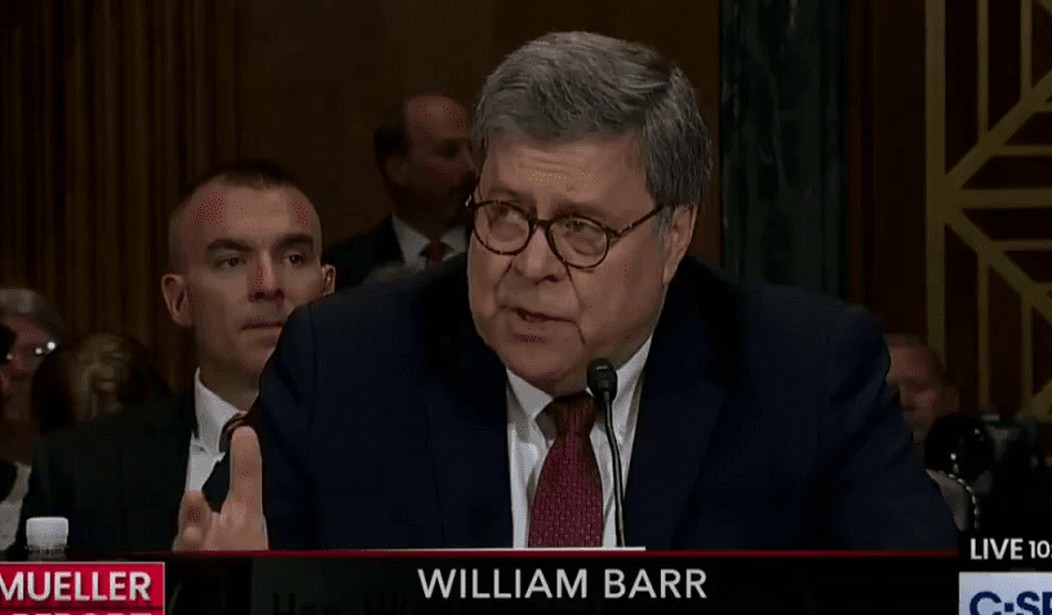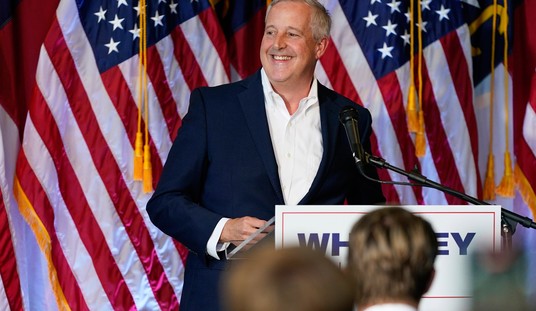
Screengrab from https://twitter.com/ABC/status/1115615769142763520
During testimony on Wednesday before the Senate Judiciary Committee, Attorney General William Barr expressed his surprise that special counsel Robert Mueller did not come to a conclusion on whether or not President Trump had obstructed justice. Barr had expected a decision from Mueller, which is the norm.
Barr told the senators, “We did not understand exactly why the special counsel was not reaching a decision. We don’t conduct criminal investigations just to collect information and put it out to the public. We do so to make a decision.”
Yes, Mr. Barr, that’s how it’s usually done unless a prosecutor knows he can’t make a reasonable case against a defendant, but is interested in maintaining pressure. Particularly if the defendant is President Donald Trump, whom you hate, and you’re hoping that if the case is left open, others will pick up where you left off.
In an earlier post about the Washington Post’s pre-testimony attempted “ambush” on Barr last night, I wrote:
Unable to conjure up a valid reason to build an obstruction of justice case against President Trump, but still needing to find a way to continue the charade, special counsel Robert Mueller muddied the waters. He deliberately left the interpretation of his non-conclusion to Attorney General William Barr which left the door open for Democrats to resurrect their bogus narrative at critical moments. As hunting season on the deep state approaches, be sure that these attempts will increase in number.
Barr is receiving heavy criticism from the left over his conclusion that Trump did not obstruct justice.
Here are Barr’s written remarks about the issue of obstruction:
In Volume II of the report, the Special Counsel considered whether certain actions of the President could amount to obstruction of justice. The Special Counsel decided not to reach a conclusion, however, about whether the President committed an obstruction offense. Instead, the report recounts ten episodes and discusses potential legal theories for connecting the President’s actions to the elements of an obstruction offense. After carefully reviewing the facts and legal theories outlined in the report, and in consultation with the Office of Legal Counsel and other Department lawyers, the Deputy Attorney General and I concluded that, under the principles of federal prosecution, the evidence developed by the Special Counsel would not be sufficient to charge the President with an obstruction-of-justice offense.
The Deputy Attorney General and I knew that we had to make this assessment because, as I previously explained, the prosecutorial judgment whether a crime has been established is an integral part of the Department’s criminal process. The Special Counsel regulations provide for the report to remain confidential. Given the extraordinary public interest in this investigation, however, I determined that it was necessary to make as much of it public as I could and committed the Department to being as transparent as possible. But it would not have been appropriate for me simply to release Volume II of the report without making a prosecutorial judgment.
The Deputy Attorney General and I therefore conducted a careful review of the report, looking at the facts found and the legal theories set forth by the Special Counsel. Although we disagreed with some of the Special Counsel’s legal theories and felt that some of the episodes examined did not amount to obstruction as a matter of law, we accepted the Special Counsel’s legal framework for purposes of our analysis and evaluated the evidence as presented by the Special Counsel in reaching our conclusion. We concluded that the evidence developed during the Special Counsel’s investigation is not sufficient to establish that the President committed an obstruction-of-justice offense.
More and more information about the deep state’s coup to destroy Trump is being revealed each day. Most significantly, the DOJ Inspector General’s report on FISA Court abuse is due in the next four weeks and rumors have been swirling that it will contain criminal referrals. Democrats are hoping their attacks on Barr’s credibility will provide a distraction from the fallout.
The bottom line is that if Mueller believed he had sufficient evidence of a crime, he would have indicted. Because he knew he did not, he did the next best thing, which was to sow confusion.













Join the conversation as a VIP Member